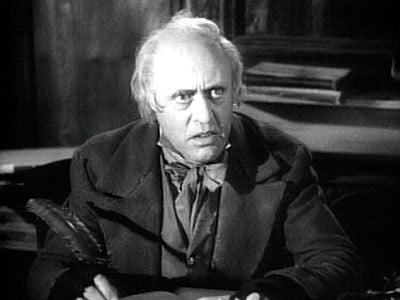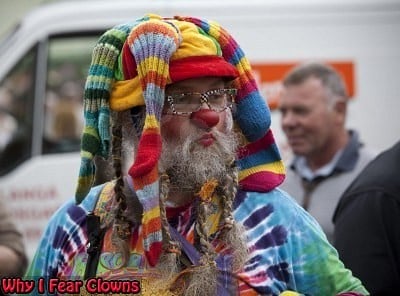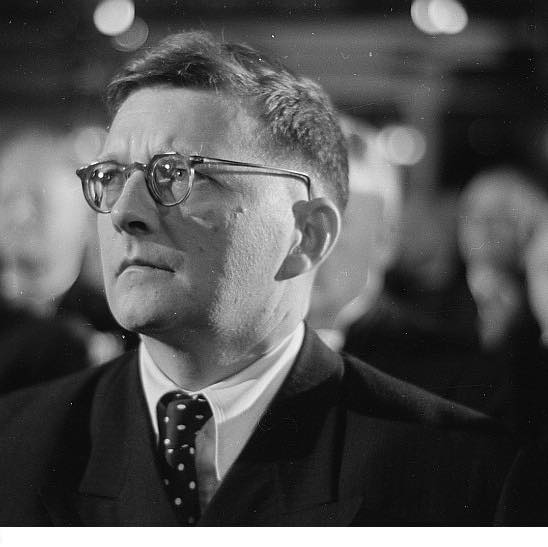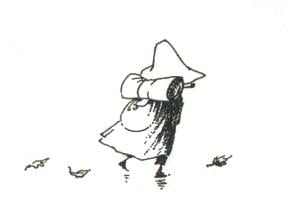/PAlogo_v2.gif) |
|
Post Reply 
|
Page <123> |
| Author | |||
BarryGlibb 
Forum Senior Member 

Joined: August 28 2010 Location: Melbourne, Oz Status: Offline Points: 1781 |
 Posted: April 01 2013 at 04:49 Posted: April 01 2013 at 04:49 |
||
|
The only one I own of these is The Stone Roses. So I suppose I better go for that one then.
|
|||
 |
|||
jude111 
Forum Senior Member 
Joined: October 20 2009 Location: Not Here Status: Offline Points: 1744 |
 Posted: April 01 2013 at 08:13 Posted: April 01 2013 at 08:13 |
||
I disagree totally. I prefer the British music of this same era, which towers over the American scene, IMO: The Smiths, My Bloody Valentine, Stone Roses, the Pogues, Manic Street Preachers, Primal Scream, the Prodigy, Massive Attack, Tricky, Portishead, Chemical Brothers, Pet Shop Boys, Spacemen 3/Spiritualized, the Cure, Jesus and Mary Chain, the Blue Nile, Stereolab, the Orb, Future Sound of London, Aphex Twin, Mogwai, Britpop (Suede, Blur, Pulp, Oasis, Verve, Radiohead), and so much more... There's much more color and variation in those bands above than in the American indie scene. (The fact that Americans would ghettoize some of the above into electronica genres ignores the fact that this was British indie music, and it had much wider ideas of what music is and can be. It wasn't so ghettoized in England. I use this term "ghetto" on purpose - see my comments below about city vs. country.) I think British music's much more adventurous and forward looking, while American (white) music's pretty conservative. Brits were merging electronics in the late 80s; American bands are just getting around to doing it... America's saving grace has always been its black music - blues and then jazz and then hip-hop. The reason why America's indie music is more popular with Americans than the British indie scene is that Americans largely listen to mostly American music. I hardly heard any of the bands I listed above played on American alternative radio stations in the 90s. Secondly, I've found that the American music listening public is generally much more conservative and less adventurous than their British counterparts. This conservatism runs deep in American society - at the linguistic level, at the political level - so it stands to reason that it's reflected in its music. I like some American indie music, but I do think most of it's country music in another guise. (Eddie Vedder's a country singer; the Pixies - and I do like them - are a country band.) Maybe I can put it this way: most British indie rock sounds like urban music that emerged from the city. American indie music sounds like it came from the suburbs or rural areas. Beck - and I love his music - sounds like he was nurtured in the mean streets of a suburban K-Mart aisle rather than, say, Brooklyn. America's urban music is its black music. (Although of course not all black music is urban music :-) Let the public stoning commence!
  Edited by jude111 - April 01 2013 at 10:23 |
|||
 |
|||
jude111 
Forum Senior Member 
Joined: October 20 2009 Location: Not Here Status: Offline Points: 1744 |
 Posted: April 01 2013 at 09:17 Posted: April 01 2013 at 09:17 |
||
|
An article today in the Guardian - which is clearly an April Fool's Day joke - highlights what I was writing above, about British vs. American music: Ted Nugent and Radiohead work on pro-hunting musicalUS magazine Pool Flair reports that Thom Yorke worked with the shotgun-toting rocker on We're Going on a Bear Hunt ... Radiohead are suspected to be working with Ted Nugent on a musical adapatation of the children's book We're Going on a Bear Hunt. Rest: http://www.guardian.co.uk/music/2013/apr/01/april-1-ted-nugent-radiohead?commentpage=1 And this one's not a joke: Michelle Shocked enrages fans with onstage anti-gay rantFormer lefty favourite loses gig bookings after saying same-sex marriage will be 'downfall of civilisation' Singer-songwriter Michelle Shocked has shocked fans after launching an anti-gay rant onstage in San Francisco on Sunday night... "When they stop Prop 8 and force priests at gunpoint to marry gays, it will be the downfall of civilisation, and Jesus will come back," Shocked told the crowd at Yoshi's in San Francisco, before many of them reportedly walked out. "You are going to leave here and tell people, 'Michelle Shocked said God hates fa****s.'" http://www.guardian.co.uk/music/2013/mar/19/michelle-shocked-anti-gay-rant?INTCMP=SRCH Edited by jude111 - April 01 2013 at 09:34 |
|||
 |
|||
akamaisondufromage 
Forum Senior Member 

VIP Member Joined: May 16 2009 Location: Blighty Status: Offline Points: 6797 |
 Posted: April 01 2013 at 10:21 Posted: April 01 2013 at 10:21 |
||
|
Not that bothered about any of these (the ones that I know). But I am looking forward to the Ted Nugent / Radiohead Musical Colab looks good!
|
|||
|
Help me I'm falling!
|
|||
 |
|||
HolyMoly 
Special Collaborator 

Retired Admin Joined: April 01 2009 Location: Atlanta Status: Offline Points: 26133 |
 Posted: April 01 2013 at 10:27 Posted: April 01 2013 at 10:27 |
||
|
I think the American/British apparent inequality/discrepancy is due to the simple reason that "indie rock" from England is usually not called indie rock. The term itself seems to apply to American independents. Doesn't mean British bands aren't worthy of the list, it just means there's probably another genre name for those groups.
"Indie Rock" is really a misleading term anyway. It used to mean any band that puts its own records out, or records for a very small label uncontrolled by the majors. Now it just means any schlubb with a flannel shirt. |
|||
|
My other avatar is a Porsche
It is easier for a camel to pass through the eye of a needle if it is lightly greased. -Kehlog Albran |
|||
 |
|||
Finnforest 
Special Collaborator 
Honorary Collaborator Joined: February 03 2007 Location: . Status: Offline Points: 16913 |
 Posted: April 01 2013 at 10:33 Posted: April 01 2013 at 10:33 |
||
I can see his point  |
|||
|
|
|||
 |
|||
Guldbamsen 
Special Collaborator 

Retired Admin Joined: January 22 2009 Location: Magic Theatre Status: Offline Points: 23098 |
 Posted: April 01 2013 at 10:36 Posted: April 01 2013 at 10:36 |
||
I agree with this Steve. Anyway, Indie rock is just about as loose a description of the actual content as prog rock is. Natural Snow Buildings were introduced to me as an Indie group, if you can believe that. Hell they're even labeled as such on many websites. Personally I'd call them a progressive folk drone act, and that is a long ways from the stuff you encounter in the likes of Arcade Fire and Interpole. |
|||
|
“The Guide says there is an art to flying or rather a knack. The knack lies in learning how to throw yourself at the ground and miss.”
- Douglas Adams |
|||
 |
|||
Guldbamsen 
Special Collaborator 

Retired Admin Joined: January 22 2009 Location: Magic Theatre Status: Offline Points: 23098 |
 Posted: April 01 2013 at 10:42 Posted: April 01 2013 at 10:42 |
||
|
Yo Steve-o!
10000 posts 
|
|||
|
“The Guide says there is an art to flying or rather a knack. The knack lies in learning how to throw yourself at the ground and miss.”
- Douglas Adams |
|||
 |
|||
jude111 
Forum Senior Member 
Joined: October 20 2009 Location: Not Here Status: Offline Points: 1744 |
 Posted: April 01 2013 at 10:49 Posted: April 01 2013 at 10:49 |
||
American radio stations and publications like Spin Magazine didn't call it 'indie rock' usually, they called it alternative music. Whatever British people called it, the alternative radio music stations I knew of in the US played Pearl Jam, Stone Temple Pilots, Alice in Chains, Jane's Addiction, Soundgarden, Beck, etc. American flannel-shirt country rock. In fact, they're *still* playing it today. I only knew of My Bloody Valentine, Primal Scream, the Prodigy et al because I read about them - even though they would have slotted right in on those alternative music stations and blown it wide open. Poor American kids, they're exposed to so little. Hopefully the internet's changed that :-)
Edited by jude111 - April 01 2013 at 10:51 |
|||
 |
|||
Padraic 
Special Collaborator 

Honorary Collaborator Joined: February 16 2006 Location: Pennsylvania Status: Offline Points: 31165 |
 Posted: April 01 2013 at 10:50 Posted: April 01 2013 at 10:50 |
||
Don't know where you were, but really? Smiths, The Cure, Morrissey received plenty of play on college radio (Brown U, Providence, RI) in the 90s. Britpop like Oasis back then and Adele and Mumford now are huge successes here. I could go on but you get the picture - we had plenty of exposure to British acts in the 90s, where college radio or word of mouth was the only way to get it in pre-internet times.
|
|||
 |
|||
jude111 
Forum Senior Member 
Joined: October 20 2009 Location: Not Here Status: Offline Points: 1744 |
 Posted: April 01 2013 at 10:57 Posted: April 01 2013 at 10:57 |
||
I was in Baltimore/D.C. and Portland, Oregon til the late 90s, and then Europe. Not exactly Nebraska. Yes, Oasis was an exception, as was PJ Harvey. I think because they were guitar-based bands and their music drew heavily from the past, that American stations played them. Yes, the Smiths and Morrissey have a really small but devoted following in the US. The closest I ever came to hearing the Smiths in the USA was the theme song to the tv show Charmed - but even there, it was a cover version of the Smiths' "How Soon Is Now." I mean, the Smiths are *famous* for Americans not getting it, and joining other bands like the Kinks and Bowie and Blur and Pulp - bands that were *huge* in England, household names, but pretty obscure in the US. I think you've highlighted the difference: in the USA, a few of these British bands were played on a handful of college radio stations in the US, and that was about it. I remember Portland State's radio station only seemed to extend a few blocks, and then the signal was gone...
Edited by jude111 - April 01 2013 at 11:11 |
|||
 |
|||
HolyMoly 
Special Collaborator 

Retired Admin Joined: April 01 2009 Location: Atlanta Status: Offline Points: 26133 |
 Posted: April 01 2013 at 11:10 Posted: April 01 2013 at 11:10 |
||
|
|||
|
My other avatar is a Porsche
It is easier for a camel to pass through the eye of a needle if it is lightly greased. -Kehlog Albran |
|||
 |
|||
jude111 
Forum Senior Member 
Joined: October 20 2009 Location: Not Here Status: Offline Points: 1744 |
 Posted: April 01 2013 at 11:39 Posted: April 01 2013 at 11:39 |
||
That's a part of the problem, isn't it? "Indie music only applies to American bands." It's a nice way of excluding British music. (Yet this list *does* have the British band the Stone Roses on it, so I couldn't help thinking that British bands are included, only they're just not rated high enough by Americans.) I think of "Indie" as another term for "alternative music" before Nirvana became popular and suddenly the "indie" bands were getting offered major label deals. Not just Nirvana, but also Husker Du, REM, Sonic Youth, all who signed with major labels (but not all who were college bands)... Anyway, the differences in how these bands survived and thrived is going to be different in the US than in England - this reflects differences in the superstructure. Perhaps because of these social and corporate structures is one reason why American music tends to be pretty similar and of a narrow range. I'm still convinced my main points are basically correct: English music's more adventurous, varied and urban than American white music, and mainstream America listens primarily to American music (though there are some exceptions). It's not only the case now. It's been the case since the British Invasion. There are no American bands on the level of the Beatles, the Stones, the Who, Floyd, Genesis, Yes, Bowie et al. Okay, there are a few Americans who reach that level: Dylan, Hendrix (2/3rds of which was English), the Velvet Underground (Cale=English, Nico=German). Not many though. And so it's gone: Most of the great punk bands were British (Sex Pistols, Clash, Wire, Buzzcocks, Gang of Four et al), most of the great New Wave/sythnpop music was British (Gary Numan, Depeche Mode, Pet Shop Boys - okay, I'm not a fan of 80s music generally...). (I know my views are not going to be popular, LOL  . Americans don't like it when someone suggests that they're not #1. . Americans don't like it when someone suggests that they're not #1.  ). ).Edited by jude111 - April 01 2013 at 12:42 |
|||
 |
|||
Padraic 
Special Collaborator 

Honorary Collaborator Joined: February 16 2006 Location: Pennsylvania Status: Offline Points: 31165 |
 Posted: April 01 2013 at 12:36 Posted: April 01 2013 at 12:36 |
||
I guess I just don't see the big deal. Felt like there was plenty of exposure to British acts - and if they weren't as popular as Seattle bands, who cares? Are we supposed to completely mirror the UK in terms of who is popular and who isn't? I can tell you that hearing Pearl Jam or Nirvana on a radio station in the early 90s was a breath of fresh air compared to the drivel pumped out just five years prior - the fact that "alternative" radio stations started cropping up was a victory. My only mild offense is that I certainly don't feel the need to be "#1", but I take a slight objection to being labeled as some sort of slobbering neanderthal if I prefer listening to Alice In Chains over the Stone Roses.
|
|||
 |
|||
jude111 
Forum Senior Member 
Joined: October 20 2009 Location: Not Here Status: Offline Points: 1744 |
 Posted: April 01 2013 at 12:59 Posted: April 01 2013 at 12:59 |
||
But I've never heard anyone else say what I've said, so I don't think it's a common idea. Furthermore, I think it usually goes the other way: Americans (not us here in PA) often adopt patronizing attitudes towards English bands - or anyway, critics often do. Edited by jude111 - April 01 2013 at 13:58 |
|||
 |
|||
Dean 
Special Collaborator 

Retired Admin and Amateur Layabout Joined: May 13 2007 Location: Europe Status: Offline Points: 37575 |
 Posted: April 01 2013 at 13:02 Posted: April 01 2013 at 13:02 |
||
|
All the UK Indie bands are tagged as Indie on RYM so the chart imbalance is simply maths - more Amercians vote on RYM so more Amercian acts will figure in the Top 25 chart, hence my observation "as viewed by Americans". It's no big deal, I just don't know (or like) enough of these Amercian Indie bands to have an opinion, and if The Pixies then where the hell are Sonic Youth?
|
|||
|
What?
|
|||
 |
|||
Padraic 
Special Collaborator 

Honorary Collaborator Joined: February 16 2006 Location: Pennsylvania Status: Offline Points: 31165 |
 Posted: April 01 2013 at 13:08 Posted: April 01 2013 at 13:08 |
||
|
Just to be clear: when you say "typical attitude of Americans" do you mean the average guy walking down the street or the American music press? If the latter, well, I've never really cared what any in the music press have to say; if the former, I'll take your word for it as I've not been exposed to that attitude, but I really don't hang out with a crowd that would express any attitude towards British music, "indie" or otherwise - e.g., they're passive radio listeners that aren't anywhere near as passionate about music as those you'll find on this site.
|
|||
 |
|||
LinusW 
Special Collaborator 

Honorary Collaborator Joined: September 27 2007 Location: Sweden Status: Offline Points: 10665 |
 Posted: April 01 2013 at 13:22 Posted: April 01 2013 at 13:22 |
||
 |
|||
Dean 
Special Collaborator 

Retired Admin and Amateur Layabout Joined: May 13 2007 Location: Europe Status: Offline Points: 37575 |
 Posted: April 01 2013 at 13:49 Posted: April 01 2013 at 13:49 |
||
|
|||
|
What?
|
|||
 |
|||
jude111 
Forum Senior Member 
Joined: October 20 2009 Location: Not Here Status: Offline Points: 1744 |
 Posted: April 01 2013 at 14:01 Posted: April 01 2013 at 14:01 |
||
My theory actually comes from two studies - one on linguistics (which looks at the morphology of spoken English in the US vs. England) and one on geography and political ideology. Linguistics studies show that there's greater variations and ranges of dialects in England in just a few square miles than there are in hundreds of miles in the US; and also, English has evolved much quicker in England, while it's very slow to change in the US. So at the linguistic level, the US is much more conservative. A research question would be: Might a greater phonological range and a faster rate of change & development correlate to a greater range of innovation, stylistic trends and faster developments within popular music? Some political geography studies on the other hand show how place determines politics - basically, if you live in the suburbs you're more likely to be conservative - even if you were formerly a liberal living in the city, that's likely to change when you move. The implication is that the de-urbanization of America has helped contribute to the country's swing to the right. Therefore it stands to reason that urban music is quicker to change and be innovative, while rural music will be more conservative, more resistant to change. (I'm an old-style Marxist: revolution comes from the urban industrial working class, not the suburban shopkeepers or farmers  ) )My theory is that the implications of these studies might have some implications for music as well. If I had done that PhD I might have developed this theory more...  Why didn't I do that PhD? sniff sniff... Why didn't I do that PhD? sniff sniff...Edited by jude111 - April 01 2013 at 14:09 |
|||
 |
|||
Post Reply 
|
Page <123> |
| Forum Jump | Forum Permissions  You cannot post new topics in this forum You cannot reply to topics in this forum You cannot delete your posts in this forum You cannot edit your posts in this forum You cannot create polls in this forum You cannot vote in polls in this forum |